Who was the 'real' Charlie Chaplin?
Eugene Chaplin
My father!
APRIL 28, 2024
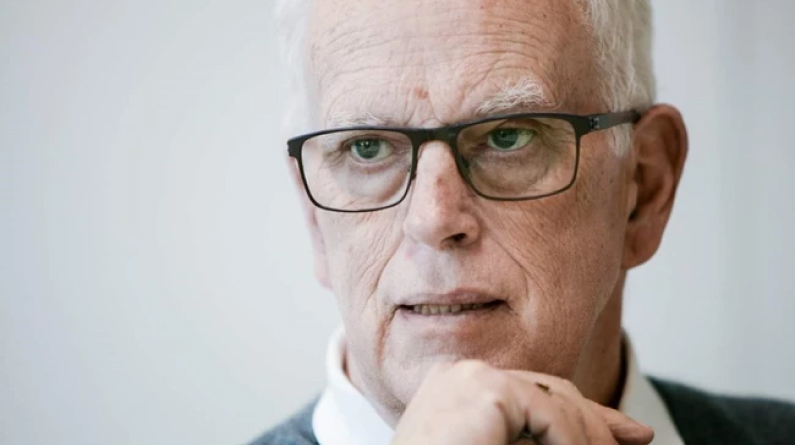
Just like mercury, Charlie Chaplin’s personality is untouchable. You can write a sentence about him without the word detector marking it red. Superhuman, comic genius, passionate supporter of democracy, entrepreneur and a riddle even for his closest friends.
Only Einstein managed to describe him: “You do not say a word, and yet the world understands you.”
His best script though, he wrote and played it out until the end of his life, in a whimsical household in Manoir de Ban in Switzerland. There, he lived his happiest years with his beautiful wife, Oona O’Neil and their 8 children.
Their 5th kid, Eugene never felt the shadow of his father as a burden. Conversely, he felt that this shadow came from a tree that happened to be in his backyard and he is grateful for its presence.
This is remarkable because most of the time children-heirs try to escape from the legacy they come from.
Eugene is proud of his father and tries to expand his reputation in the younger generations, while simultaneously drawing his own impressive path in life, having a successful career.
I really wanted to meet this special son of this very special father. For me my father is a man like no other, but Eugene has many reasons to believe the same things.
Sir Chaplin didn’t grant interviews, so I feel lucky and blessed to live in this era. I had the wonderful opportunity to meet his son and though him to learn about Chaplin himself and his family. I hope he can forgive us both.
And, if they connect
with you, they’ll feel
the emotion.
And the emotion will make you love the show and not to be forgotten.
Mr. Chaplin you are graduate of RADA, Royal Academy of Dramatic Art. You went to study there with the direction of internship manager as a specific professional choice?Having a very high bar for performing arts, did you have teachers who you admired or who became your mentors?
No. I don’t really have any teacher I admired at RADA except the, the director. She was a lady who was quite amazing.And she would gather us once a week, all the stage management students. And she’d she’d tell us she wanted to see shows in London. Then she’d tell us off saying how the stage management of those shows were terrible.
How were the first steps of your professional life? Which type of show did you like the most and which one was the most demanding?
My first steps were directing a choir of Berlioz, the Trojan at the Geneva Opera House. I was very young. I oversaw 40 choir members sending them on stage and getting them off stage in time. I worked at Geneva Opera House. And, I did about 2 years there, then I left.And I went to Montreal Casino. They employed me to look after the entertainment there. And there was no entertainment because it was just at the beginning of the casino opening, but there was a recording studio. It was just being built with the latest technology. And so, I applied for a job there. I started off by making tea and starting from the bottom and working working, you know, myself upwards because I had a a certain amount of sound training.
On what occasion did you become a sound engineer?You collaborated with music legends. With Queen and David Bowie, you developed close relationships. What can you tell us about them in terms of their off -stage personalities? You entered their homes, experienced their daily life, if there was one… I’m a big fan of Freddie Mercury so I confess the vested interest!
I collaborated with a lot of people. That’s just because the studio was there and was very popular. Plus, because it was the latest analog technology there at the time. Then we had the Jazz Festival, and we recorded 5 albums a night and 5 concerts a night. We recorded all different artists from rock to to jazz.It was very interesting. That helped me to broaden my mind about music. My collaboration with Queen and with Bowie and all that went well
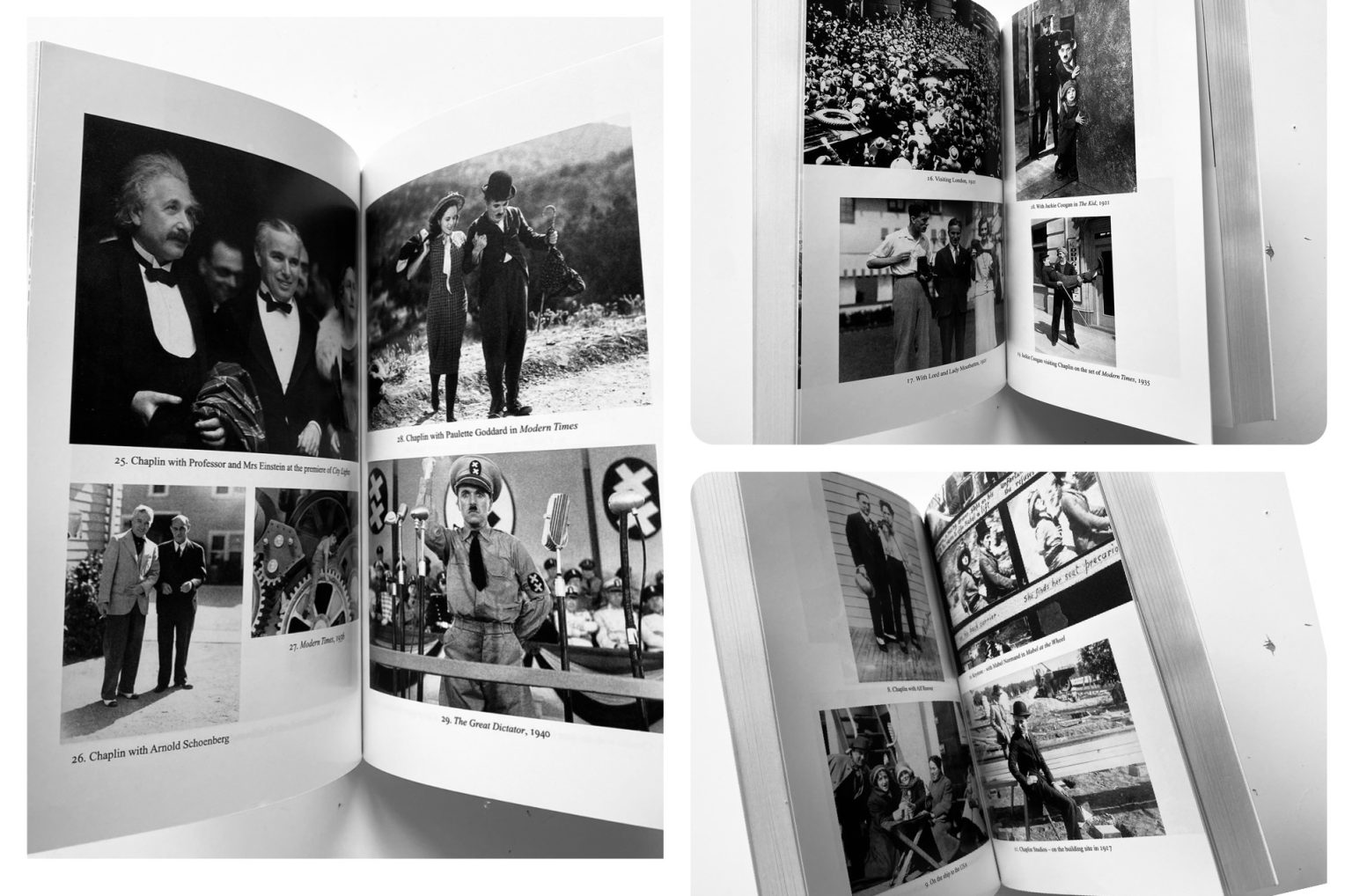
Were there any of these stars big fans of Chaplin or did they had a strong interest in learning about his life through you?
Were they impressed by being about me being the son of Charlie Chaplin? I don’t think so. I think they were more amused. They were wondering what I was doing there.
With the celebrities you hung out with as a child and as a professional, did you notice any common traits that made them so special? Did you notice something in common with Charlie Chaplin?
No. I don’t have any memories of someone who’s had common traits as well, I didn’t think like that. You know? With the artists I met, I was more on the emotional side. You hit off or you don’t, it’s like a love affair. The chemistry works or it doesn’t. With some, it did and with some, it didn’t.
You directed the documentary film “Charlie Chaplin : A Family Tribute”, the performance ” Chaplin Pianissimo » and created with producer the grandson Chaplin and your son, the musical ‘ Smile ‘ .When you have your father as the subject of your work, do you feel pressured by the “obligation” to meet the demands of his perfectionism, or do you only operate emotionally? In your professional life, did professional recommendations from your mother to your father or from your father to you come, and if so what were they?
As I said before, I work more emotionally. I don’t try to reach, well, I’ll try to reach the perfection, but I I’m not comparing myself to anyone. I do my best in what I try to do.
The circus is a great love of yours with a purely family interest.Can you describe the day the circus visited your house as vividly as possible?But I would also like you to tell me what is it about the circus that attracts you so much? Is it the spectacle or the personalities of the artists who have unsurpassed performances while performing but usually outside the stage are sad people as it is usually said?
Well, the circus is always, a big part of our lives because the Swiss National Circus would come once a year to our town, and we were always invited out to see the show.And I still go now and see them. It’s a traveling circus which triggered my admiration because every year, they have a new show. It’s not like they have one show. They can travel around Europe or something and keep the same show for the next year. Switzerland is a small country, so they must renew themselves every year. My father had a lot in common with them because of the music hall in England. And, of course, the circus is very visual. Visual. There’s acrobatics. There’s juggling and all that, which my father learned to do, from circus artists in England. What to say about the clowns? Well, I think the clowns are just human. You know? They’re some days they’re happy. Sometimes they’re sad. But their makeup always makes them look happy and sometimes they’re quite sad on the other side. But, for all the clowns I’ve met, to me, they’re all people with a big heart, and that’s the important thing.
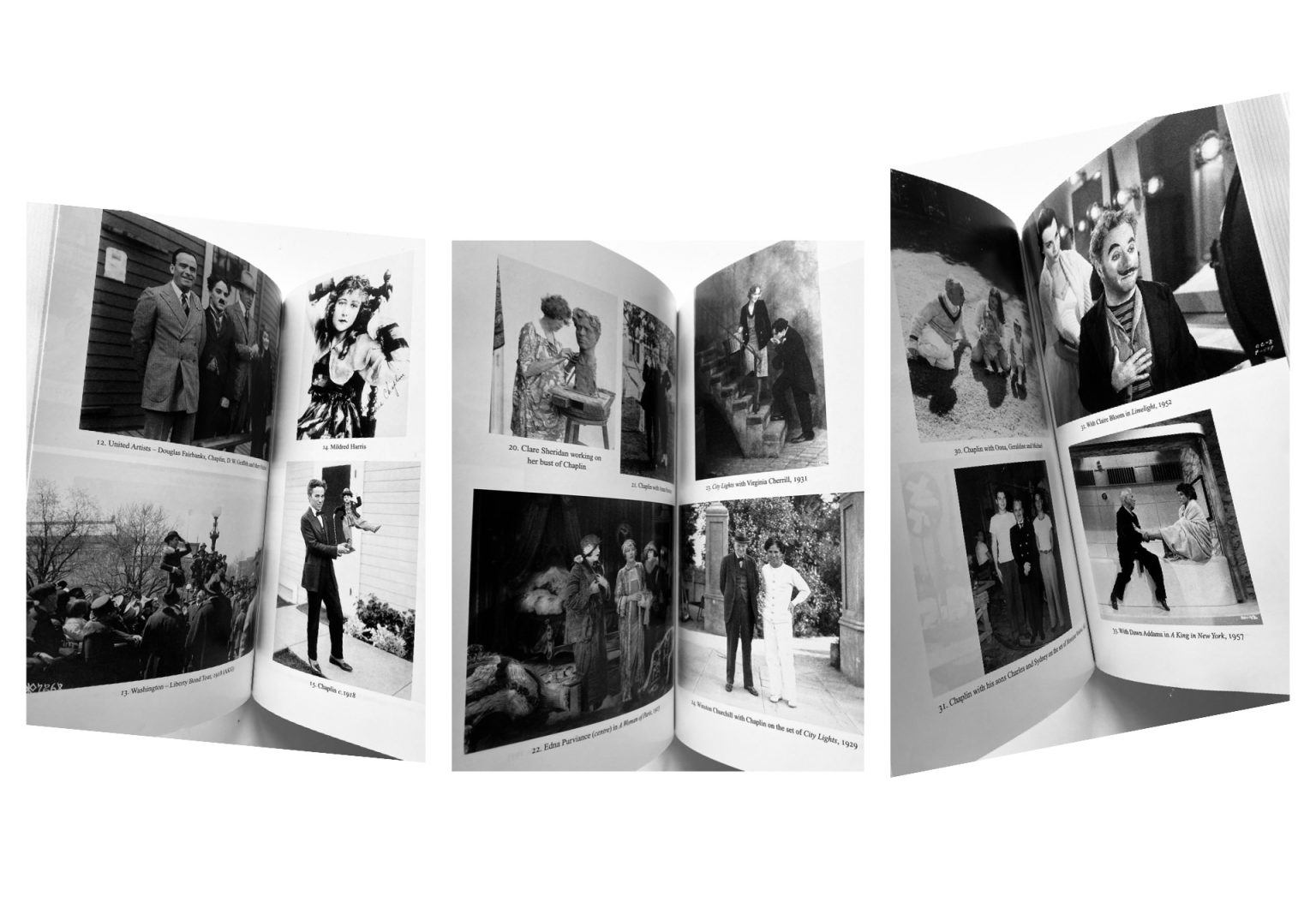
I was lucky enough to see you in person at the tribute show: ” Chaplin Pianissimo » at the Megaron the Athens Concert Hall. You and your brothers are the owners of a world artistic legacy and from your biographies on your father’s official site , we see that you all dabbled in different types of art.
Well, I’m glad you enjoyed the show. That’s the important thing. And the only thing I can say is it’s important to do things with your heart and transmit it to the people. The people will listen to it. And, if they connect with you, they’ll feel the emotion. And the emotion will make you love the show and not to be forgotten. Yes. We all dabbed in different parts of art. I think being an artist is being able to try out all different kinds of arts and see, you know, what is your interest, if you prefer painting or writing. The beautiful thing about art, it’s imagination. And imagination has no limits.
My father composing music too. It was hard work for him because not being a musician, he had to really be patient when writing his music. I guess he had the melody in his head and he kind of played it out on the piano. And until he got it right, it took several days for just one piece of music. The interesting thing with his music is he wrote complete melodies. So that means he wrote a whole song of maybe 30 seconds for a scene. So if you listen to all of his music, a lot of it is very sentimental. And it’s interesting how he composed it.
You often refer to the good manners your father demanded from all his children.What did he consider as good manners and what bothered him in the social behavior of a person?
My father was strict on the manners because he knew that people who had good manners would be liked in society. While someone with no manners and no education will have more problems of integrating in society.
You were named after your Nobel laureate grandfather, Eugene O’Neill.How was this name given to you while your mother, Oona O’Neill, is said to have been ostracized by him, or was that relationship also affected by the yellow press who was stalking your father?
My name is Eugene, for I was named by my mother, I guess, because of Eugene O’Neil who died the same year I was born. He was handsome, he was a very, strong character man. My mother used to speak about him quite a lot with affection even though he never forgave my mother marrying my father because of the big age difference and plus because he was, a filmmaker, which wasn’t a serious thing to his mind, I guess.
Your father wherever he was, he was taking up all the space, but your mother was the one who shined because as you say she was the SUNSHINE of the house.
I say my mother was the sunshine of the house because since my father was working most of the time. And my mother was always the one who kept everyone happy. And she just kept everything in perfect and quiet so my father could be able to work. But as well, she was someone with incredible patience and with a great sense of humor.
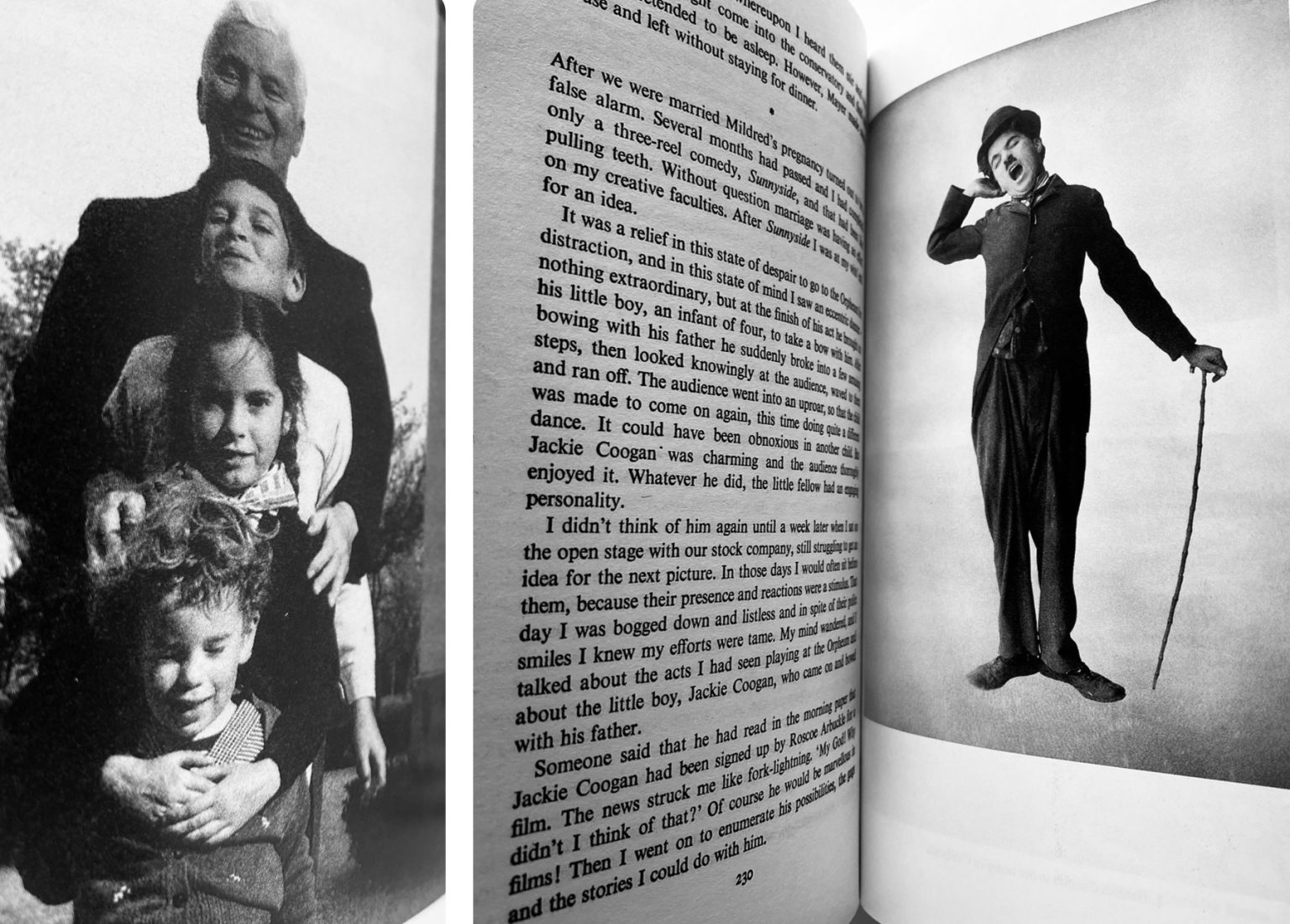
8 times in 12 months there were children’s birthdays at home excluding adults. In your home photos at Manoir de Ban on Corsier-sur-Vevey in Switzerland, which is now a Chaplin Museum I can sense the unique atmosphere. I feel like every one of them could be made into a movie. Is it like that?How did you celebrate your birthday as a child Mr. Chaplin? As an adult, we know you’ve had fabulous birthdays. Will you tell us about the specific birthday associated with Under Pressure?
Well, the Under Pressure episode took place after my father died. And I think it was after my mother died as well. So, we had the house to us so we could do such a thing.I say that story because I just think it’s funny that Queen and Bowie were there, and both were impressed by the house and the view on the lake and all. And, that night after many drinks, Under Pressure was born at the studio. It just shows the talent they have. Yes. Everything was well, it was a way of living, you know, in the house.
In this house I see the dining room set majestically like a token of your life there. Was everything so aesthetically pleasing always?
We lived like that, and we didn’t know better. You know? But living in such a house with such parents, especially with so much love around, You’re living in a bubble. That’s why I was sent to, I went to school and slept there during the week and came back only on weekends because I learned how to socialize with normal people, which was the great thing. Because if I stayed at home, I would have been totally, spoilt rotten.
After the premiere, his Great New Dictator York the Times wrote that “It is perhaps the most important film ever made” Surprisingly, however, it was the reason for the beginning of his problems. In the book ” Charlie Chaplin vs. America ” which I read on the occasion of our interview, Scott Eyman makes an attempt to explain what happened that forced Chaplin to leave the US. The ruthless head of the FBI, Hoover orchestrated relentless criticism and political abuse of Chaplin for a decade. The masterful operation of destroying his character apart from the well-known official political line was methodical and hideous as it was done by feeding gossipy popular journalists with isinformation: Hedda Hopper and Walter Winchell.You were 24 years old when you lost your father. Old enough to have grown-up conversations with each other. Did you talk about the war that America made on him? Those of you who know him as well as anyone, what have you thought about that time when the longest standing ovation awarded in Oscars (12′) was attributed to your father? It did him justice right?
The only time my father mentioned about war, it was about Vietnam and how he was so much against it. And against as well President Johnson’s policies of bombing and sending all these kids into a war, into a country where they just didn’t know why they were fighting for?
Chaplin’s films? Almost every kid may have dressed up as a Tramp, but I don’t think they’ve even seen one of his movies.By the way. Did you guys dress up as Tramp?Did you ever see your father wearing the costume in private to amuse you?
Yes. We did dress up sometimes as a skit. It was more for press pictures for a magazine and stuff like that. Well, not completely dressed, just putting a hat and cane on. And still now people ask me, oh, can you put a hat and cane on, please, for a picture? Which I don’t like doing because I’m not handsome enough for it.
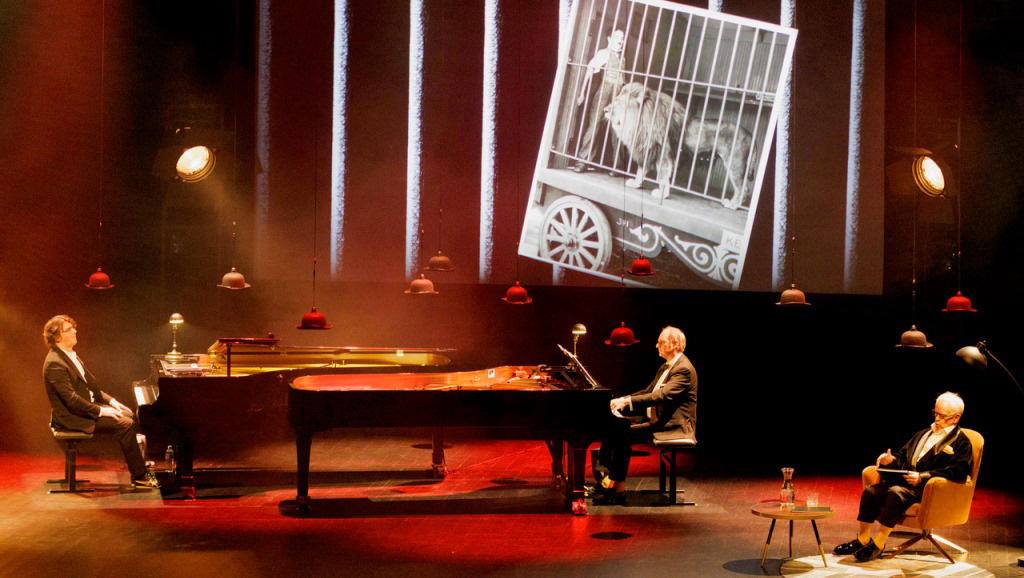
Chaplin even in the apparently apolitical films emphasized the indifference and even the intransigence of law and state to the detriment of the poor . Except for Great Dictator he also did this on his last film, “A Countess from Hong Kong , with Sophia Loren and Bardon to express his admiration for JFK as a character. Which politicians did he love?
Well, I remember he was very friendly with, well, of course, he was friendly with Churchill. And with JFK, he was very affected by his assassination.
After your father’s death did you see people’s attitudes change towards your family?
Not really. You know, I think it’s still extraordinary. I’m 70 years old now, and I’m here talking about my father and how much people like him. So I should say how much people love him. So, you know, that is fantastic.
The last question. Are you Roma Mr. Chaplin?
Well, there was suspicion that he was a Roma descendant, But he wasn’t as there’s nothing to prove it. Even though he did say that his grandmother was a gypsy. So, definitely, the gypsies have adopted him. I went to a film festival in Skopje in Macedonia, and they were all coming up and coming up to me and say, hey, brother. How are you doing, brother? And I didn’t understand why until I read his online autobiography, he said maybe he was a descendant from a gypsy. And the gypsies love to know where they come from. So they adopted him as say that there’s 2 things they adore: God and Charlie Chaplin. Which is quite nice. There we are.
Well, this was my last question. It was an honors having this conversation with you. I am grateful and thankful for the time you attributed.
Thank you very much. Take care.
I had requested an interview from Eugene Chaplin, but he hadn’t answered before I watched his magnificent tribute show: Chaplin Pianissimo » at the Megaron of Athens Concert Hall.
I went to the show to meet the son of Chaplin and hear what personal information he could share about his father. At least, that’s what I expected.
But the show was UNEXPECTED! The absolute beaty of a tribute that didn’t not include a single clip from a movie.
Past-present, father-son, two coordinators and two pianos, all in motion in a flawless performance that presented the show within the show: Pictures from Charlot, but from Charlie too.
Mr. Chaplin’s voice was deep and moving. It pinned me down without him trying to sound emotional. He unfolded his father’s musical genius which is not well known compared to his other features. He narrated unknown and personal stories of his family.
In the end he devoted time in answering questions from the audience. Someone asked: “Who was the real Charlie Chaplin?”
“My father” he replied.
I went back home and emailed him again. I told him I was present at the show, and that after this magical answer it was impossible not to talk to him. He finally got back to me.
